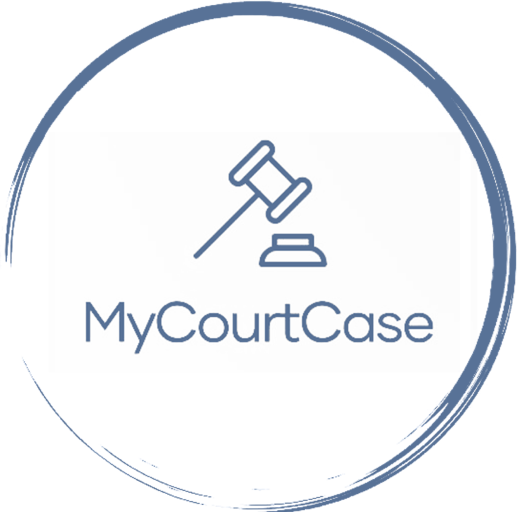Disclaimer
The information provided on this website is for general informational purposes only and is not intended to serve as legal advice. While we aim to provide useful insights, every legal situation is unique, and the laws surrounding civil litigation can vary by jurisdiction. This content should not be considered a substitute for consulting with a qualified lawyer. We strongly recommend seeking professional legal advice to discuss your specific circumstances and to ensure your rights are fully protected.
If you’ve been served with a civil lawsuit, it’s essential to consult with a lawyer as soon as possible. To provide you with the best legal advice and representation, your lawyer will need specific information about the lawsuit and your circumstances. Here’s a breakdown of the key information you should be prepared to provide:
1. The Lawsuit Documents
- Summons and Complaint: Bring the complete set of legal papers you were served with, including the summons (the formal notice of the lawsuit) and the complaint (the document outlining the claims against you). These documents contain critical deadlines and details of the allegations.
- Proof of Service: If available, provide any documentation showing when and how you were served with the lawsuit, as this may affect the timing of your legal response.
2. Your Version of Events
- Detailed Account: Prepare a clear and detailed account of the events that led to the lawsuit. Your lawyer will need to understand the facts from your perspective to build an effective defense or strategy.
- Supporting Evidence: Gather any evidence that supports your version of events. This may include emails, text messages, photos, contracts, receipts, or any other documentation related to the claims made in the lawsuit.
3. Contracts or Agreements
- Relevant Contracts: If the lawsuit involves a business, financial transaction, or agreement, provide any signed contracts, leases, purchase agreements, or written terms that are relevant to the dispute.
- Negotiations or Amendments: If any modifications or informal agreements were made after the original contract, provide documentation of those changes.
4. Communication Records
- Correspondence with the Plaintiff: Provide all communication you have had with the person or entity suing you (the plaintiff). This can include emails, letters, phone records, or text messages.
- Third-Party Communications: If you have had discussions with third parties (witnesses, business partners, etc.) that are relevant to the case, provide those records as well.
5. Witness Information
- Names and Contact Information: If there are witnesses who can support your defense, provide their names, contact details, and a brief description of what they may testify to.
- Expert Witnesses: In some cases, expert testimony may be necessary. If you know any experts who can provide insight on the issues in the case, make sure to mention them.
6. Timeline of Events
- Chronological Timeline: Prepare a detailed timeline of events leading up to the lawsuit. This can help your lawyer understand the context of the case and identify any key issues.
- Critical Dates: Highlight any important dates, such as when certain contracts were signed, payments were made, or incidents occurred that are relevant to the case.
7. Insurance Policies
- Relevant Insurance: If you have insurance that may cover part or all of the claim (such as liability insurance, homeowner’s insurance, or business insurance), provide copies of the policies and details about any prior claims or communication with your insurer.
8. Financial Information
- Damages and Claims: If the lawsuit involves financial claims, provide documentation of the damages being claimed by the plaintiff. This could include invoices, unpaid bills, property valuations, or estimates of loss.
- Your Financial Status: Your lawyer may also need an understanding of your current financial situation, especially if there is a risk of a judgment or financial penalties. Bring relevant financial records such as bank statements, tax returns, or pay stubs.
9. Prior Legal Issues
- Related Legal Matters: If there are any prior legal matters that are connected to the current lawsuit, such as other lawsuits, disputes, or court orders, provide documentation and explain how they relate to the present case.
- Criminal Records: In some civil lawsuits, particularly those involving fraud, dishonesty, or misconduct, a criminal record may be relevant. Be honest with your lawyer about any prior criminal history, as it could affect your case.
10. Settlement Offers or Negotiations
- Settlement Discussions: If you’ve already had settlement discussions with the plaintiff or their lawyer, provide details about those conversations, including any offers made or demands communicated.
- Desire to Settle: Be prepared to discuss whether you are interested in trying to settle the case out of court, as this can influence your lawyer’s strategy.
11. Previous Court Filings
- Related Court Documents: If there have been any previous motions, pleadings, or other court filings related to this lawsuit (e.g., if this is part of an ongoing litigation), provide copies of those documents.
12. Statute of Limitations
- Deadlines and Legal Timeframes: If you believe there is an issue regarding the statute of limitations (the time within which a lawsuit must be filed), provide any relevant dates and documentation that might show whether the claim was filed within the required time frame.
By providing all of this information to your lawyer, you help them gain a clear understanding of your case and develop an appropriate legal strategy. Timely and accurate information is essential in responding to a lawsuit and protecting your rights. Your lawyer will use this information to assess the strengths and weaknesses of the case and determine the best course of action.
